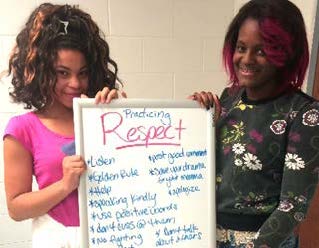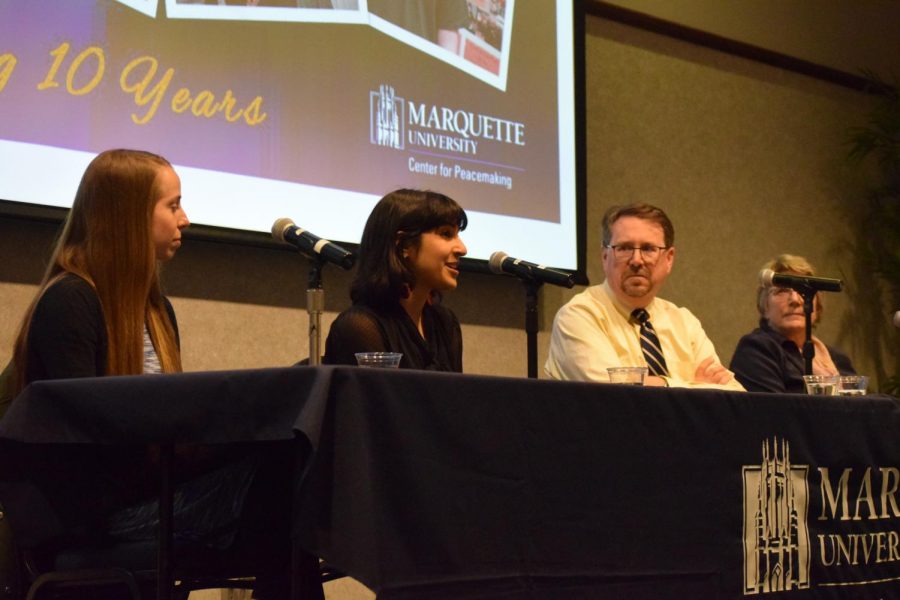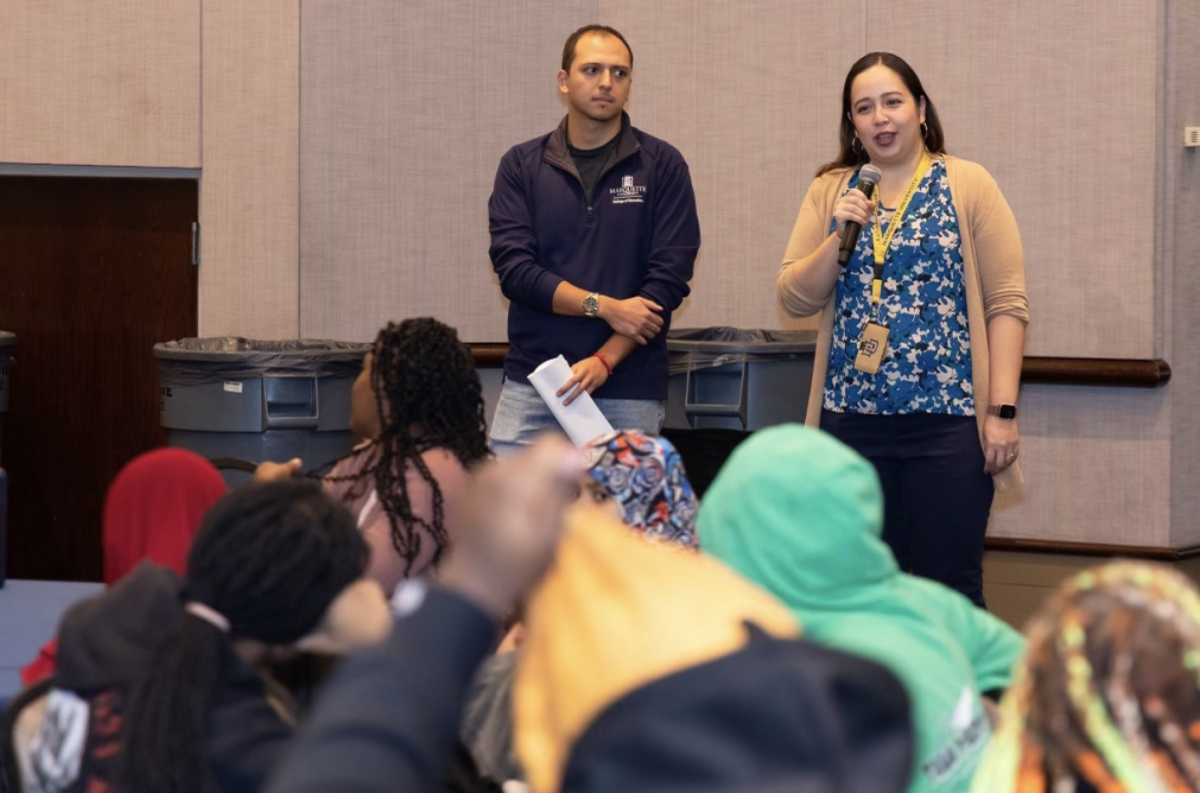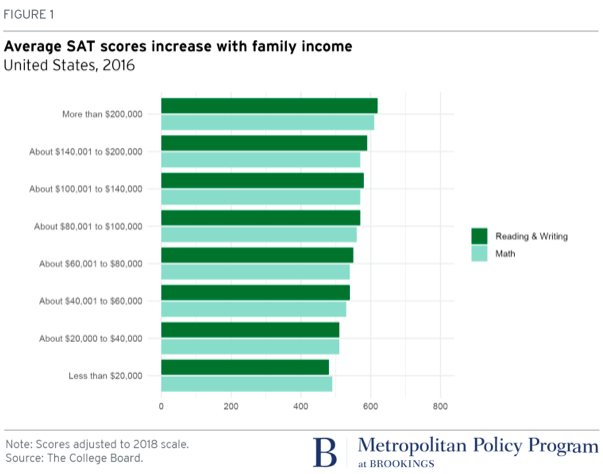
Marquette’s Center for Peacemaking received a one-year, $240,480 grant from Milwaukee Public Schools to include three additional “behavioral reassignment schools” to its Peace Works program.
These schools are institutions for students expelled from other MPS schools. “Two years ago MPS and Marquette began collaborating to address violence and increasing the protector factors of young people from violence along with their academic success,” Patrick Kennelly, director of the Center for Peacemaking, said.
Peace Works is a non-violence education program operating in Catholic and public schools in Milwaukee and Chicago. It is eight years old and utilizes games, role play and reflection for students grades 6-12.
Since the initial collaboration, MPS nearly doubled the size of the program, extending it to all of their behavioral reassignment schools. By January, the program will operate in five separate schools within the Milwaukee community.
In a study done with Milwaukee’s Washington High School, there has been an 80 percent reduction in expulsion referrals and a 77 percent decrease in suspension or discipline referrals since the program’s implementation.
“We work with small groups of students once a week,” Pam Stahler, the Peace Works coordinator, said. “Each lesson has a different focus such as positive thinking, empathy, decision-making, gratitude or managing emotions.”
The Center for Peacemaking staff also works with the teachers on incorporating the lessons students learn into their style of teaching and classroom management.
“By involving the teachers and administrators, it helps to change the school’s culture,” Sherri Walker, the program coordinator, said.
The center is designed for academic research. Students help with the data collection and evaluation of Peace Works and the program’s participants. The faculty aims to provide Marquette students with skill sets to go out and find jobs.
Most of the Marquette students that work with the center are employed under the grant alongside volunteers. Students from a variety of disciplines work for the center, including fields like education, psychology, peace studies and economics.
“That’s a really critical component to the program because it is an applied educational experience for Marquette students and it is also a great way that Marquette is engaging in the community,” Kennelly said.
The center works to disseminate knowledge on how non-violence can promote peace within Milwaukee and with the youth population. Marquette students and faculty work directly with the younger students to teach non-violence as a way to resolve conflict.
The goal of the program is to give students the skills to resolve conflicts, demonstrate compassion and promote peace in their communities.
“The youth of Milwaukee are our future,” Stahler said. “We’re all concerned about what’s happening in our city and our world. This is a really tangible and effective way to take action and to create change.”





